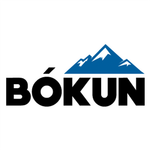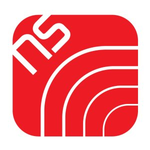Description

Bokun

Bookeasy
Comprehensive Overview: Bokun vs Bookeasy
Bokun and Bookeasy are both prominent software solutions in the travel and tourism industry, offering services to help businesses streamline their operations and improve customer experience. Here's a comprehensive overview of each:
Bokun
a) Primary Functions and Target Markets:
- Primary Functions: Bokun is a comprehensive travel management platform primarily designed for tour and activity providers. It includes features like booking management, product bundling, channel management, inventory control, pricing and availability management, promotional tools, and analytics. It's designed to facilitate the management of front and backend operations, enabling users to efficiently run tours, activities, and various travel experiences.
- Target Markets: The platform mainly targets tour operators, activity providers, and travel experience companies, from small businesses to larger enterprises, looking to optimize their operations and expand their sales channels.
b) Market Share and User Base:
- Bokun, a product of Icelandic origin, gained traction when it was acquired by TripAdvisor in 2018, which significantly boosted its visibility and integration capabilities. Bokun's strong integration into the TripAdvisor infrastructure helps it tap into TripAdvisor's vast user base. However, detailed specific market share metrics are generally proprietary and are not explicitly available.
c) Key Differentiating Factors:
- Integration with TripAdvisor: As part of the TripAdvisor family, Bokun offers seamless integration with one of the largest travel platforms in the world, providing users a substantial increase in potential customer reach.
- End-to-End Management Features: Bokun stands out with its comprehensive suite of tools that cover all aspects of tour and activity management, providing a centralized solution for various operational needs.
- Flexible Pricing Model: Bokun offers a transactional pricing model, which can be appealing to smaller businesses or those with fluctuating sales volumes.
Bookeasy
a) Primary Functions and Target Markets:
- Primary Functions: Bookeasy is a destination management software solution predominantly used by Visitor Information Centres (VICs), Regional Tourism Organizations (RTOs), and destination marketing organizations. It provides solutions for accommodation bookings, tour and activity bookings, membership management, and itinerary planning.
- Target Markets: It targets the broader tourism markets, especially focusing on those facilitating destination management and visitor services, such as regional tourism bodies and information centers, particularly in the Australasian region.
b) Market Share and User Base:
- Bookeasy is well-entrenched in the Australasian tourism market, with a strong user base among destination management organizations. Its dedicated niche focus allows it to dominate the space occupied by VICs and local tourism boards but remains less visible on a global scale compared to platforms integrated with larger ecosystems like TripAdvisor.
c) Key Differentiating Factors:
- Destination Management Focus: Unlike Bokun, Bookeasy’s services are tailored specifically for destination management, providing specialized tools for tourism organizations and information centers.
- Comprehensive Local Support: Bookeasy offers extensive support for local tourism needs and has established a strong presence, particularly in Australia and New Zealand, where it holds substantial market influence.
- Membership and Event Management: Bookeasy offers robust features for managing tourism organization memberships and local events, making it a preferred choice for regional tourism bureaus.
Conclusion
While both Bokun and Bookeasy offer innovation and value within the tourism sector, their strategic focus and targeted market segments differ significantly. Bokun captures a global audience through its integration with TripAdvisor, suitable for independent tour and activity providers. Bookeasy, however, thrives in the destination management niche, specifically servicing tourism organizations within Australasia. These factors make the choice between them highly dependent on the specific needs and geographical target of the business.
Contact Info

Year founded :
Not Available
Not Available
Not Available
Not Available
Not Available

Year founded :
2002
Not Available
Not Available
Australia
http://www.linkedin.com/company/bookeasy56
Feature Similarity Breakdown: Bokun, Bookeasy
When comparing Bokun and Bookeasy, both of which are travel and tourism management software solutions, there are several aspects to consider, including core features, user interface differences, and unique features distinct to each platform. Let's break these down:
a) Core Features in Common
-
Booking Management:
- Both Bokun and Bookeasy offer comprehensive booking management systems that allow operators to manage reservations efficiently.
-
Inventory Management:
- These platforms provide tools for managing inventory, such as tours, activities, and accommodations, which help businesses keep track of availability and resources.
-
Channel Management:
- The ability to manage distribution channels, such as OTAs (Online Travel Agencies), is present in both systems. This feature helps synchronize bookings and availability across various platforms.
-
Payment Processing:
- Both Bokun and Bookeasy have integrated payment processing to handle customer transactions seamlessly, supporting multiple payment options.
-
Reporting and Analytics:
- Each platform offers reporting and analytics tools to help businesses track their performance and make data-driven decisions.
-
Customer Relationship Management (CRM):
- Basic CRM features for managing customer information and communication are available in both solutions.
b) User Interface Comparison
-
Bokun:
- Bokun's user interface is known for its clean design and ease of navigation. It's structured to facilitate rapid configuration and setup, catering well to businesses looking for quick deployment.
- The interface prioritizes user experience with a logical flow and clear presentation of core functionalities, which is beneficial for users who are not technologically advanced.
-
Bookeasy:
- Bookeasy's interface might appear more tailored towards experienced users in the tourism industry. It provides a more detailed and customizable interface but can have a steeper learning curve for new users.
- The design caters to detailed operational requirements, which can be advantageous for users who need in-depth customizability and control.
c) Unique Features
-
Bokun:
- Dynamic Pricing: Bokun offers dynamic pricing capabilities that allow for price adjustments based on demand, time of booking, or customer segmentation, providing flexibility in pricing strategies.
- Marketplace Integration: It integrates with a global marketplace, making it easy for operators to connect with resellers and expand their distribution networks effectively.
-
Bookeasy:
- Visitor Information Center Integration: Bookeasy is particularly strong in integrating with visitor information centers. It allows operators to collaborate directly with local tourism offices, enhancing visibility and bookings through these channels.
- In-depth Local Support: With a strong footprint in specific regions, Bookeasy offers extensive local support and networking capabilities, making it an appealing option for operators in those areas.
Overall, while Bokun and Bookeasy share many essential features for managing travel and tourism operations, the key differentiators come down to specific capabilities and integrations that align with particular business needs. Bokun is notable for its pricing flexibility and marketplace reach, while Bookeasy shines with local integration and support, especially in regions where it has a strong presence.
Features

Product Management
Customer Management
Reporting and Analytics
Payment Processing
Bookings and Reservations

Not Available
Best Fit Use Cases: Bokun, Bookeasy
Bokun and Bookeasy are both platforms designed to streamline operations in the travel and tourism industries, but they cater to slightly different use cases and operational needs.
a) Bokun Use Cases
Types of Businesses or Projects for Bokun:
-
Tour Operators and Activity Providers:
- Bokun is ideal for businesses that offer tours and activities, including adventure companies, city tour operators, and special interest tours. It provides robust tools for managing bookings, resources, scheduling, and pricing, making it easier to handle complex itineraries and varying availability.
-
Resellers and Distribution:
- Companies looking to expand their reach through distribution networks can benefit from Bokun’s marketplace and distribution tools. It allows businesses to connect with a wide range of resellers and agents, extending their market presence.
-
Transport Services:
- Shuttle services, bus operators, and other transportation businesses can use Bokun to manage schedules, capacities, and multi-stop routes efficiently.
-
Experience-Based Venues:
- Venues that offer experiential services, such as museums or culinary experiences, can use Bokun to manage ticket sales, timed entries, and group bookings.
-
Established Businesses Seeking Scalability:
- Companies looking to scale their operations will find Bokun useful due to its comprehensive API integrations and partnership with platforms like Expedia.
Bokun Industry Vertical and Company Size:
- Bokun caters to medium to large businesses in the tourism industry that require detailed and customizable booking solutions. It's particularly suited to companies with more complex product offerings and those seeking to leverage distribution networks for broader reach.
b) Bookeasy Use Cases
Scenarios Where Bookeasy is Preferred:
-
Visitor Information Centers and Destination Management:
- Bookeasy excels in environments where visitor information centers are central hubs for distributing tourism services. It allows these centers to integrate local tour operators, accommodations, and attractions into a single booking system.
-
Regional Tourism Organizations:
- Organizations managing tourism for a specific region will benefit from Bookeasy’s ability to centralize bookings for multiple local businesses, promoting collaboration and simplified customer journeys.
-
Small to Medium-Sized Businesses:
- Smaller operators who need a straightforward, cost-effective platform will find Bookeasy adequate. It’s great for operators who want to focus on a specific geographic area or set of services without extensive scaling requirements.
-
Community Airlines or Smaller Transport Services:
- Bookeasy’s straightforward booking management solutions can also serve smaller transportation operations that do not require the expansive distribution features that Bokun offers.
Bookeasy Industry Vertical and Company Size:
- Bookeasy is targeted at smaller to medium-sized tourism businesses and regional entities looking for integrated destination marketing and booking solutions. It’s widely used by local tourism operators, visitor centers, and agencies needing to manage a range of services in a coordinated manner.
d) Catering to Different Industry Verticals and Company Sizes
-
Industry Verticals: Bokun caters more towards large, tour-focused companies and those with complex distribution needs. Its industry applications include adventure tourism, large-scale tour operators, transportation, and experience-based venues. In contrast, Bookeasy is more suitable for regional tourism bodies and visitor centers that facilitate multiple types of bookings in a localized context.
-
Company Sizes: Bokun is optimal for medium to large enterprises looking for scalability and extensive market reach, leveraging technology to handle complicated operations. Bookeasy, on the other hand, is geared more towards small to medium-sized businesses aiming to centralize and streamline their operations regionally without the complexity of large-scale distribution networks.
Pricing

Pricing Not Available

Pricing Not Available
Metrics History
Metrics History
Comparing undefined across companies
Conclusion & Final Verdict: Bokun vs Bookeasy
When comparing Bokun and Bookeasy, both platforms have their own strengths and weaknesses, making the choice dependent on specific business needs and preferences. Here's a comprehensive conclusion and verdict:
a) Best Overall Value
Bokun tends to offer the best overall value for larger operations or businesses looking for extensive functionalities. Its strengths lie in comprehensive inventory management and its robustness in handling complex combinations of tours, activities, and additional products. This makes it an excellent choice for companies seeking scalability and integration with multiple sales channels.
Bookeasy, on the other hand, provides excellent value for smaller to mid-sized operations aiming for simplicity and efficiency, particularly those anchored in specific destinations like visitor information centers or certain lodging providers. It offers a seamless way to manage bookings and integrate local tourism collaborations.
b) Pros and Cons
Bokun:
-
Pros:
- Extensive API capabilities for broader integrations.
- Strong in managing complex inventory and dynamic packaging.
- Wide range of partner integrations.
- Suitable for scaling businesses that need multi-layered solutions.
-
Cons:
- Steeper learning curve for new users.
- Can be more expensive for businesses not fully utilizing its extensive features.
- May require technical assistance for setup and integration.
Bookeasy:
-
Pros:
- User-friendly interface with easy setup.
- Ideal for smaller businesses focused on tours, activities, and accommodations within a destination.
- Focused on integrating local tourism and community bookings.
- Offers tailored solutions for visitor information centers.
-
Cons:
- Limited in handling complex inventory combinations.
- Less functionality for businesses aiming to scale widely with global distribution.
- Fewer options for API integrations compared to Bokun.
c) Specific Recommendations
-
Evaluate Business Needs:
- Businesses should assess the size and complexity of their operation. Those needing comprehensive tools and global integration should lean towards Bokun, while those focusing on local destinations and straightforward operations might find Bookeasy more beneficial.
-
Consider Growth Plans:
- If a business anticipates significant growth and diversification in its service offerings, Bokun’s scalability and feature set might be more appropriate.
-
Budget Assessment:
- Smaller businesses or startups might prefer Bookeasy for its simplicity and cost-effectiveness. Meanwhile, those who can invest in and benefit from more complex systems may opt for Bokun for its broad capabilities.
-
Trial and Feedback:
- Both platforms usually offer demos or trial periods. Users should take advantage of these to get hands-on experience and gather feedback from their team regarding usability and integration with current operations.
In conclusion, the best choice between Bokun and Bookeasy depends heavily on individual business goals, size, and the complexity of operations. Assessing these factors will guide users towards the platform that aligns best with their strategic vision.
Add to compare
Add similar companies




